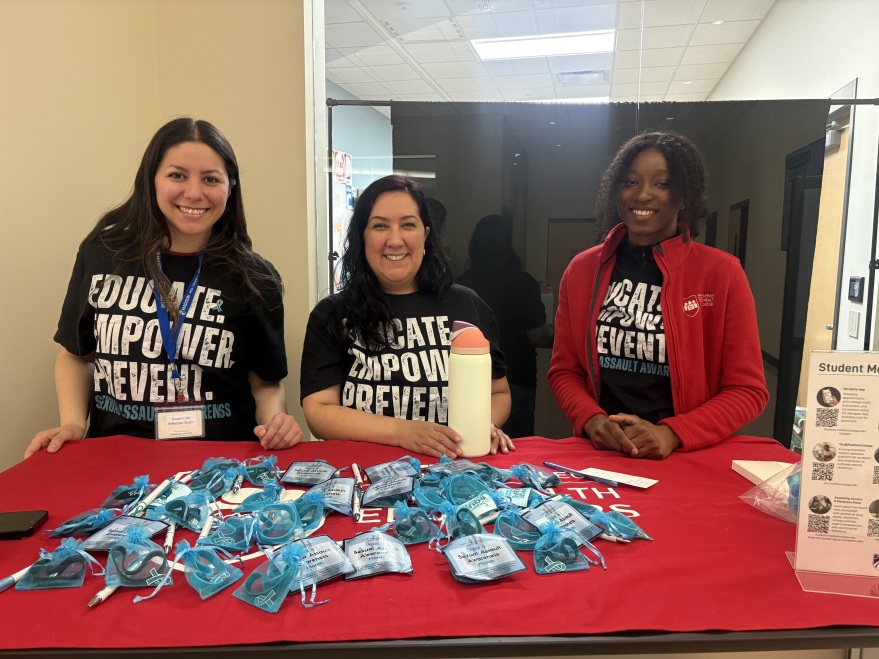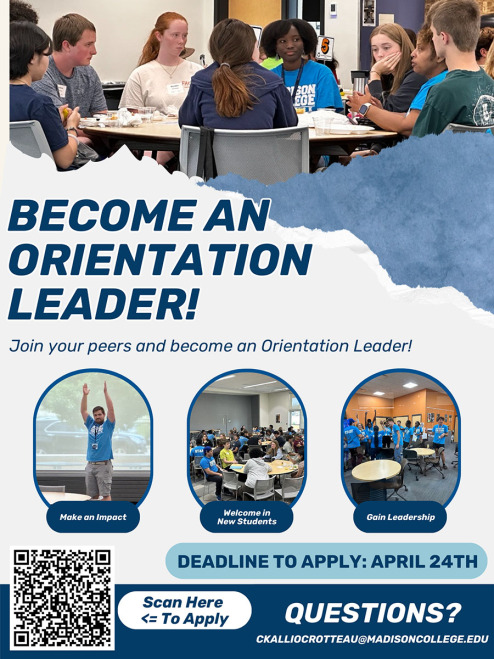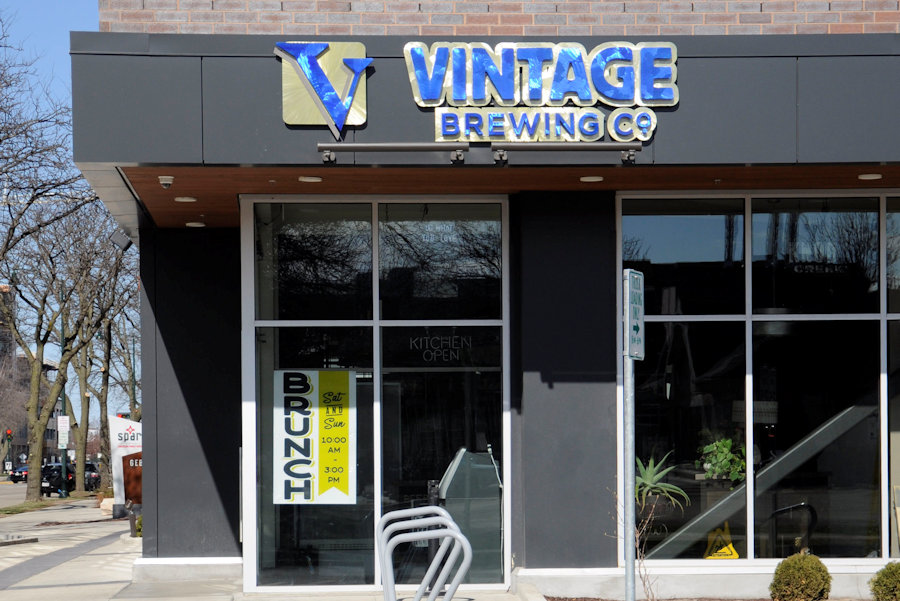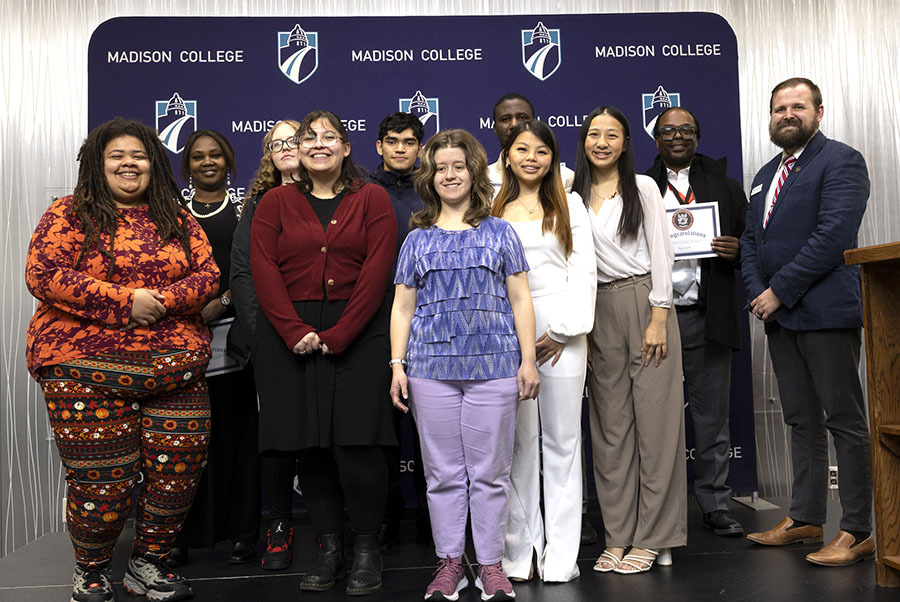How COVID-19 is affecting students in the service industry
Vintage Brewing Company in downtown Madison is one of many services that have been closed during the COVID-19 pandemic. Students who rely on the service industry for their income are feeling the financial pinch.
April 8, 2020
The COVID-19 virus has severely impacted the way that people all over the world go about their day to day lives.
In China, Wuhan and several other cities have been quarantined in attempts to control the spread of the virus.
In Italy, the government has set forth a nationwide lockdown. All public events have been canceled, and all public spaces are to remain closed for the foreseeable future.
Here, in America, the federal government has declared a public health emergency. Several states have closed their borders, restricting travel and insisting that citizens stay home and avoid contact with others.
Government officials across the United States have begun to take more drastic steps towards controlling the country’s rising number of COVID-19 cases. Governors in at least 30 states, including Wisconsin, have closed all nonessential businesses, such as bars, restaurants, tattoo parlors, nail salons, music venues, theaters, malls and other public spaces. Recently, Gov. Tony Evers issued a “Safer at Home” order, which prohibits Wisconsinites from all nonessential travel.
In Madison, Wis., service industry employees have especially suffered from business shutdowns. Thousands of people are now left to deal with the prospect of no paid leave. A couple of friends in the service industry, who are also students, agreed to talk to me about how the COVID-19 pandemic has affected their work life and their school life.
Cassandra Cullen, a student at Madison College, has been temporarily laid off at two of her three jobs, due to nonessential business closures. Luckily, Cullen is still able to work as a disc jockey at the WJJO radio station.
At the radio station, Cullen has had to adapt to some new guidelines. During every shift change, she must sanitize her workstation and avoid contact with others. Because there are chances that Evers’ safer at home requirements will become stricter, Cullen has received papers that claim her right to be out as an essential worker. “I am glad I am one of the few that haven’t gotten (all the way) laid off,” said Cullen.
Isabel Olsen-Valdez, a student at the University of Denver and food runner at Vintage Brewing Company, has had to leave her dorm at the University of Denver. Due to the COVID-19 outbreak, several colleges, including the University of Denver, the University of Wisconsin-Madison and Madison College, have decided to conduct classes online for the remainder of the semester.
Olsen-Valdez was only planning to return home for spring break, but now, in addition to not being able to work, she must remain in Madison until the next school year.
Olsen-Valdez states that the whole situation is “pretty surreal. It hasn’t really kicked in yet. I was planning to come home and work a lot and make a lot of money, but obviously, nobody is working. I was also hoping to reconnect with everybody at work because I miss that family.”
Unfortunately, because Vintage Brewing Company falls under the nonessential business category, it is unclear whether Olsen-Valdez will be able to reconnect with her Vintage family any time soon.
Despite not being able to reconnect with her coworkers, Olsen-Valdez recognizes that the closure of all nonessential businesses “was the right move. It is a huge burden on a lot of people, and it’s really unfortunate, but I think that is what needed to be done.”
Cassidy Martin, a student at the University of Wisconsin-Madison and server at Vintage Brewing Company, has also had to leave her dorm.
After UW-Madison announced the cancellation of face to face classes, Martin planned to stay in Madison to work. However, now that her workplace has been shut down for the foreseeable future, Martin has decided that it would be best for her to return to her home in Nashville, Tenn.
Martin doesn’t plan to stay in Nashville for long; she wants to go live with her sister in Washington until August and find work. However, since Washington has one of the largest numbers of confirmed COVID-19 cases in the country behind New York, New Jersey and California, it has locked down its borders. Martin is unsure what she will do if the lockdown continues for a prolonged period.
When asked if she thought that restaurants and other service industries would be able to recover financially from statewide shutdowns, she replied, “I think a lot of people started to prepare for this before it even happened. There are people in place that are trying to prevent the economic depression that we now face, but you know, people are just doing the best they can. Eventually, this will all die down if we just do what we’re supposed to do.”
It is hard to imagine the extent of the repercussions that many businesses, communities and individuals face in this unprecedented period in modern history. Amid this time of uncertainty, one thing is certain: as long as we, as individuals, take the proper precautions to prevent the spread of the virus, and remain hopeful and supportive of each other, then things will begin to go back to normal sooner than later.
































